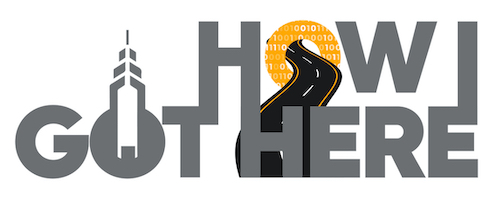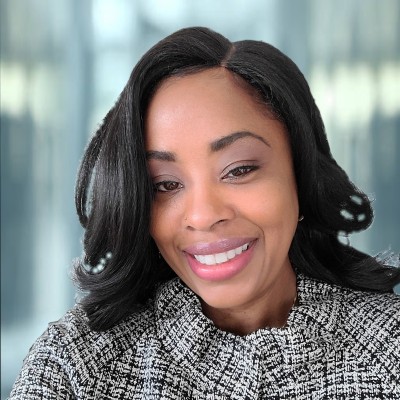Working as a technologist definitely was not on Comcast director Lena Masterson’s mind in childhood.
Instead, Reston, Virginia-based Masterson actually started her career in the military. After having her daughter in her senior year of high school, she followed in her older brother’s footsteps by joining the US Navy, through which she became an interior communications electrician.
Joining the military felt like one of her only options, she said. The collegiate pathway was never discussed in detail at home or school.
“I’m 17 and I have a one-year-old, I had my daughter when I was 16,” Masterson told Technical.ly. “So I’m just trying to find the best route to take, which is how I ended up in the military.”
After two years in the military, Masterson decided to leave when she couldn’t get on-shore placement, meaning she would be away from her daughter for six months at a time. So, she took a job at AT&T, where she worked in customer support and sales.
Still, even back in high school, she knew that math was always one of her strong suits. She also picked up some technical skills from her work as an electrician. After spending seven years at AT&T, she got the chance to transition into a more technical role as a field engineer and installer for Lucent Technologies. That stint lasted a few years before she moved to the backend, taking a role as a senior data engineer and deployment lead at Andrew Corporation, where she spent the next 14 years. Following that experience, she became a senior release management engineer at Comcast, working her way up to her current position as director of software management and engineering in strategic planning and delivery.
“Because I did have some other technical experiences that translated over to the software side of the house — and having a technical aptitude, the understanding of how things may work or troubleshooting, and things of that nature — I was able to actually apply those skills into the new software side that I had landed in,” Masterson said.
But her field experience alone did not lead Masterson down the technologist path. As a married, working mom, she decided to go back to school while working at Lucent, earning her associate’s degree from Northern Virginia Community College at age 31. But since she discovered that she would need more schooling to move into certain positions, she ultimately attained both a bachelor’s in business administration and an MBA from the University of Maryland Global Campus. She said she studied business administration because she had enough technical experience to almost equate to a bachelor’s degree, and she wanted to make herself more marketable.
Completing a degree as a mom, spouse and full-time employee wasn’t exactly easy. To get through it, she would take as many courses as she could at a time — including online, weekend and half-semester courses — to more or less complete a full course load. Being a mom helped push her to get it all done, though she noted that she also leaned on some people who could step in and help.
“I know a lot of women could understand this, you just do,” Masterson said when asked how she managed it all. “You just figure it out and you just forge ahead, and you look back and say, ‘How in the world did I get all that done?’ Or, ‘How did I manage it all?’ And if it’s important to you, you figure it out.”
Masterson, who said she’s always looking to learn, said she’s already completed a few certificate programs to grow her technical skills. Going forward, she wants to figure out what life will look like after retirement. She’ll likely continue working with Disability Partnerships, the nonprofit on whose board she sits.
She also plans to keep mentoring. Masterson regularly meets with several young technologists and her own mentors to continue her pathway and growth. She frequently tells her mentees that if there’s one thing she wished she knew on her journey, it would be that she was enough. Although that imposter syndrome never fully goes away, she noted, being unafraid to reach out and develop a network of mentors to support you and doing the best you can is all anyone can do.
“For any young person out there, you are enough,” Masterson said. “You are enough, you are able, you have everything you need.”

This is How I Got Here, a series where we chart the career journeys of technologists. Want to tell your story? Get in touch.
Join our growing Slack community
Join 5,000 tech professionals and entrepreneurs in our community Slack today!
Donate to the Journalism Fund
Your support powers our independent journalism. Unlike most business-media outlets, we don’t have a paywall. Instead, we count on your personal and organizational contributions.

Maryland firms score $5M to manufacture everything from soup to nanofiber

National AI safety group and CHIPS for America at risk with latest Trump administration firings

How women can succeed in male-dominated trades like robotics, according to one worker who’s done it


